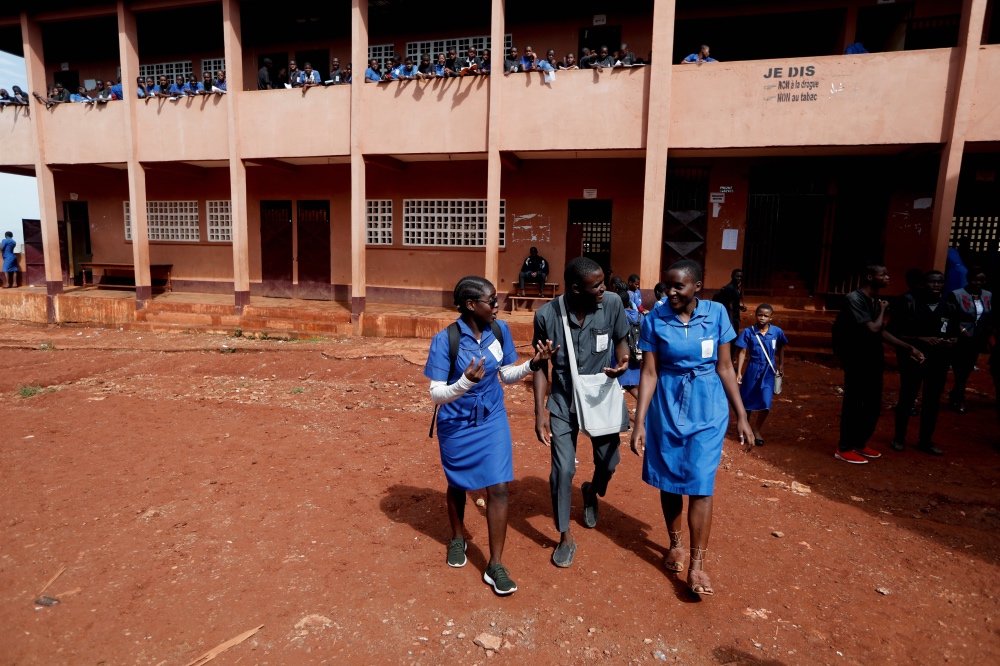Rome, Italy
Thomson Reuters Foundation
Keeping girls in schools in Africa is key to lowering the fast-growing continent’s high fertility rates and ultimately ending hunger and poverty, US economist Jeffrey Sachs said Wednesday.
Failure to do would bring more misery and suffering to the region, he warned, especially in Sub-Saharan Africa where nearly one in four people already go hungry.

Gaelle Dule Asheri (left), 17, a soccer player, who is amongst the first wave of girls being trained by professional coaches at the Rails Foot Academy, walks with her classmates at a bilingual high school where she prepares for her final baccalaureate exams in Yaounde, Cameroon, on 2nd May. PICTIRE: Reuters/Zohra Bensemra
Africa currently has the world’s highest rates of fertility, with 4.6 births per woman compared to the global average of 2.9, according to a United Nations report released in June.
Girls leaving school early and entering motherhood is the “overwhelming reason” for this, Sachs told representatives of world leaders in a World Food Day lecture at the UN Food and Agriculture Organization.
“Educate girls, fertility rates come down, women enter the labour force. That’s true across every country, every religion,” said Sachs, who advised governments and the United Nations on the latest global goals agreed in 2015 to tackle these issues.
UN figures show that 130 million girls of school age globally are not in school, and the world’s highest rate of teenage pregnancy – 143 per 1,000 girls aged 15–19 years – is in sub-Saharan Africa.
Current projections show the population of Africa could more than triple to 4.3 billion by 2100 from about 1.3 billion today.
“If Africa stays on this demographic trajectory, it’s impossible to end hunger and it is impossible to end poverty,” said Sachs, director of the Center for Sustainable Development at Columbia University in New York.
“Not only will those numbers run far ahead of any infrastructure imaginable and any public services imaginable, but the pressures on the physical land would be impossible, especially in an era of climate change.”
He urged developed nations and donors to ensure all children across the globe completed secondary school.
Sachs said climate change and conflicts – which experts say are the main drivers of global hunger which has been rising for three years in a row – are “utterly within our control”.
“We need to end the use of coal, oil and gas and move to wind, hydrogen, solar, geothermal and other zero-carbon energy sources and to complete that transformation by mid-century,” he said.
In Africa, for example, replacing wood stoves with renewables could be done within 10 years, he said.
“It’s a matter of placing the solar panels. And Africa is blessed with wonderful solar energy. It could power the whole continent,” said Sachs.
“There is no problem that we face for which solutions have not been identified…but we have been under-investing in these solutions.”





